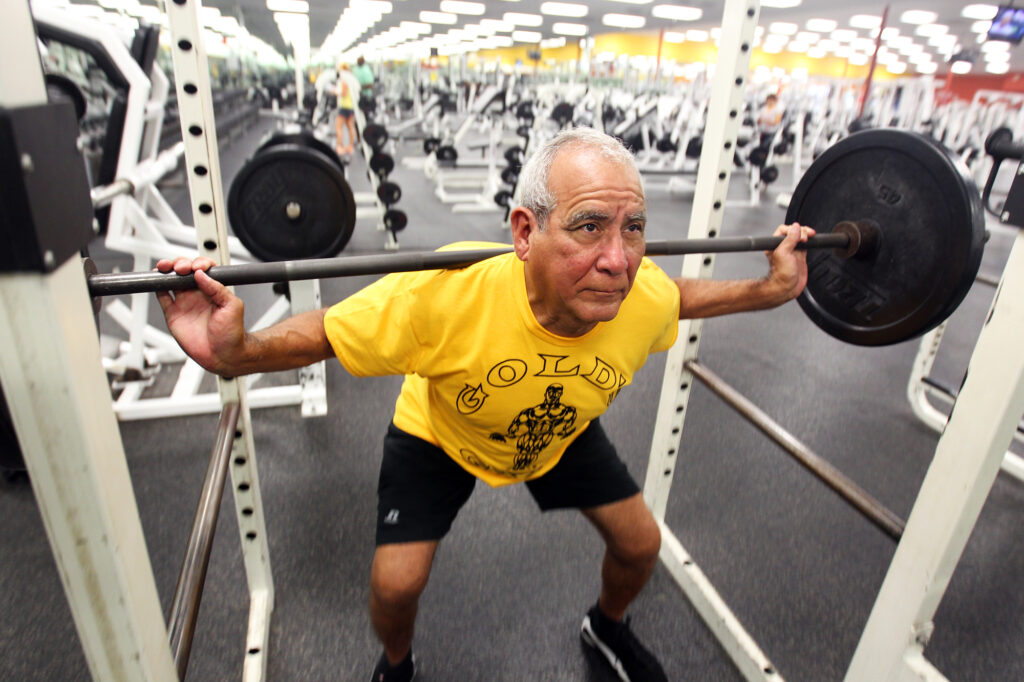Weightlifting isn’t just for the young and ripped. In fact, it’s a fantastic activity for seniors looking to improve their health and quality of life. Let’s dive into the world of senior-friendly weightlifting and discover how it can be a game-changer for your golden years.

Is it Safe for Seniors to Weightlift?
Many people worry that weightlifting might be too strenuous or even dangerous for seniors. It’s natural to have these concerns, but the truth is, with the right approach, it can be incredibly safe and beneficial.
Consulting Your Doctor
Before starting any new exercise routine, especially weightlifting, it’s crucial to consult with your doctor. They can help you understand any limitations you might have and how to work within them.
Benefits for Seniors
Weightlifting offers numerous benefits for seniors, both physically and mentally. Let’s break them down.
Physical Benefits
- Increased Bone Density: Weightlifting helps increase bone density, which is vital for preventing osteoporosis and fractures.
- Improved Muscle Strength: Stronger muscles mean better balance and coordination, reducing the risk of falls.
- Chronic Disease Management: Regular weightlifting can help manage and even alleviate symptoms of chronic conditions like arthritis, diabetes, and heart disease.
Mental and Emotional Benefits
- Boosted Mood: Exercise, including weightlifting, releases endorphins, which can improve your mood and overall sense of well-being.
- Cognitive Health: Weightlift. has been shown to help maintain cognitive function, keeping your mind sharp as you age.
Starting Safely
It’s essential to start your weightlifting journey slowly and safely. Here are some tips to keep in mind:
Begin with Light Weights
Start with light weights and focus on perfecting your form. As you become more comfortable and confident, you can gradually increase the weight.
Use Proper Equipment
Ensure you’re using the right equipment. This includes weights that are appropriate for your strength level and supportive shoes.
Warm-Up and Cool Down
Never skip your warm-up and cool down. These help prepare your muscles for exercise and reduce the risk of injury.
How Old is Too Old for Weightlifting?
Debunking the Age Myth
One common myth is that there’s an age limit for weightlifting. The reality? It’s never too late to start lifting weights and reaping the benefits.
Adjusting to Age
As we age, our bodies change, and it’s important to adjust our workouts accordingly. Here are some considerations:
Flexibility and Mobility
Incorporate exercises that improve flexibility and mobility. These help you perform weightlifting exercises safely and effectively.
Listening to Your Body
Pay attention to how your body feels during and after your workouts. If something doesn’t feel right, don’t push through the pain. Adjust your routine as needed to avoid injury.
Realistic Expectations
Understand that progress might be slower compared to younger individuals, and that’s perfectly okay. The goal is to improve your health and strength, not to lift the heaviest weights in the gym.
How Often Should Seniors Weightlift?
Recommended Frequency
So, how often should seniors engage in weightlifting? The general recommendation is to perform strength training exercises at least two to three times a week.
Creating a Balanced Routine
A balanced workout routine includes not just weightlifting but also cardiovascular exercises and flexibility training. Here’s a simple weekly plan:
Weekly Workout Plan
- Monday: Weightlifting and flexibility exercises
- Tuesday: Light cardio (like walking or swimming)
- Wednesday: Rest day
- Thursday: Weightlifting and flexibility exercises
- Friday: Light cardio
- Saturday: Weightlifting
- Sunday: Rest day
Importance of Rest and Recovery
Rest days are crucial for recovery and muscle growth. Don’t feel guilty about taking a day off – your body needs time to repair and strengthen itself.
Signs You Need More Rest
- Persistent muscle soreness
- Fatigue
- Decreased performance
Conclusion
You can achieve incredible strength and vitality at any age. Weight for seniors isn’t just about building muscle; it’s about improving your overall health, boosting your mood, and enhancing your quality of life.
Final Tips for Success
- Start Slowly: Begin with light weights and focus on form.
- Consult Professionals: Work with trainers and doctors to ensure a safe, effective routine.
- Stay Consistent: Regular workouts yield the best results.
So, gear up, lift those weights, and show the world that age is just a number. You’ve got this!
We recommend that you read The Truth About Somatic Exercise for Weight Loss & Unveiling the Impacts of Social Media on Mental Health
